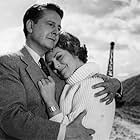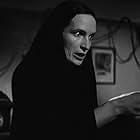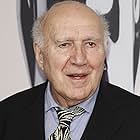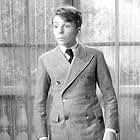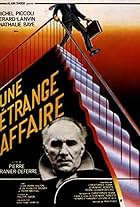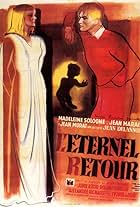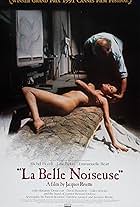Socially conscious and realistic treatment of hard working coal miners in the north of France, and a struggle between a younger and older engineer.Socially conscious and realistic treatment of hard working coal miners in the north of France, and a struggle between a younger and older engineer.Socially conscious and realistic treatment of hard working coal miners in the north of France, and a struggle between a younger and older engineer.
- Director
- Writers
- Stars
- Awards
- 1 win & 1 nomination total
Louis Daquin
- Cameo
- (uncredited)
Suzanne Demars
- La mère Gohelle
- (uncredited)
Guy Favières
- Un vieux mineur
- (uncredited)
Paul Frankeur
- Bac
- (uncredited)
Hélène Gerber
- Emma Marles
- (uncredited)
Lise Graf
- La mère Marles
- (uncredited)
Serge Grave
- Corentin
- (uncredited)
- Director
- Writers
- All cast & crew
- Production, box office & more at IMDbPro
Featured review
"le Point Du Jour" did not look like the other movies of the era.There are no principals,no real plot and it's centering on the mine itself.No melodrama,no disaster,most of the time it's the miners' daily life;their day begins "Au Point Du Jour" (at daybreak)and most of them seem happy.Only a little boy wants to get out of this place and his mother does not seem to understand him;his sister suggests he learn another job,but oddly ,as she has given him a compass for his fourteenth birthday ,that he may feel like studying does not cross her mind.What's really strange (and quite disturbing for today's audience)is that these people do not realize their sons and daughters could ask for more.It's remarkable that the long flashback (which comes out of the blue)shows that the class struggle is a thing of the past and so are strikes -now that the miners have gone in France,there are still strikes !-.The ending is even more intriguing and it reminds one of that of "Metropolis" (1926).Capital (represented by a young engineer) and labor will walk hand in hand for the sake of the production.
It does not put a question mark over Daquin's competence .But his vision is somewhat biased ,influenced by communist ideology .That a miner can be proud of his job is legitimate.However,boiling down the problems of the minors to a (gentle) conflict between an old executive (René Lefevre)who treats the miners like soldiers and a young "human" one (Jean Desailly) is quite simplistic.
A very young Michel Piccoli appears as the boy's sister's fiancé.
It does not put a question mark over Daquin's competence .But his vision is somewhat biased ,influenced by communist ideology .That a miner can be proud of his job is legitimate.However,boiling down the problems of the minors to a (gentle) conflict between an old executive (René Lefevre)who treats the miners like soldiers and a young "human" one (Jean Desailly) is quite simplistic.
A very young Michel Piccoli appears as the boy's sister's fiancé.
- dbdumonteil
- Jan 1, 2009
- Permalink
Storyline
Did you know
- ConnectionsFeatured in D'où vient cet air lointain? Chronique d'une vie en cinéma (2018)
Details
- Release date
- Country of origin
- Official sites
- Language
- Also known as
- U osvit zore
- Production company
- See more company credits at IMDbPro
- Runtime1 hour 41 minutes
- Color
- Sound mix
- Aspect ratio
- 1.37 : 1
Contribute to this page
Suggest an edit or add missing content


